Scam Email from ChinaJul182017
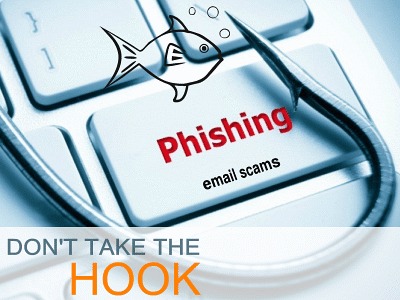
Sometimes emails read as legitimate, but end up being purely a scam, and just this month we noticed an email whereby:
- The Sender identifies themselves as a "domain name registration and solution center in China".
- The Sender received an application from a company who wanted to register the name of an already owned domain as their Network Brand and in addition, register several top-level domain names using that same name.
- The Sender is asking if any authorization has been given to this "other company" allowing them to register the domains.
- The Sender says they must be "contacted within 7 workdays", or "after the deadline" they will finish the registration for the other company.
Here’s how the Email read:
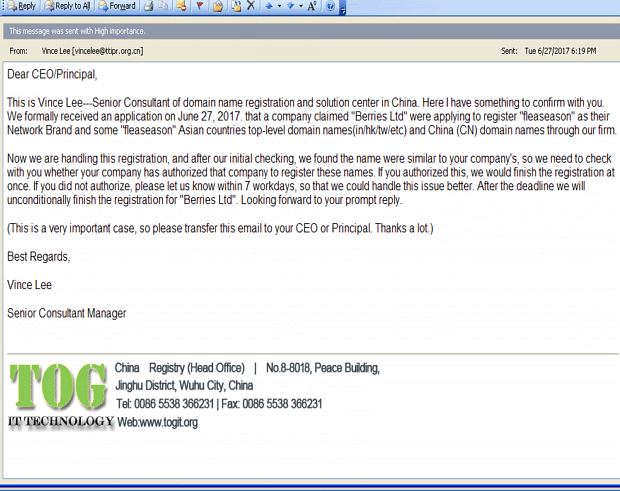
We did a bit of research and learned this particular Email Scam has been circulating since at least 2008 and with this Email received in June of 2017 – it appears the scam is still going strong – with the actual content of the Email being tweaked and twisted a bit from year to year.
A Domain search was performed on several different whois locations, and these screenshots display the registration information:
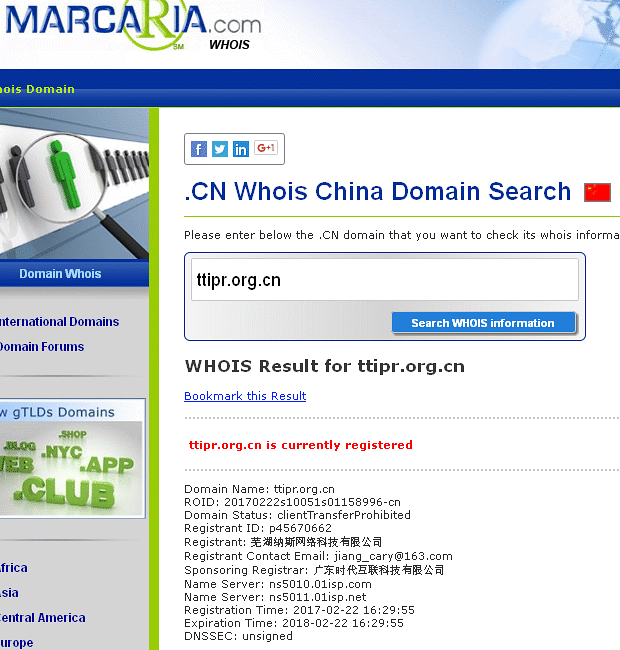
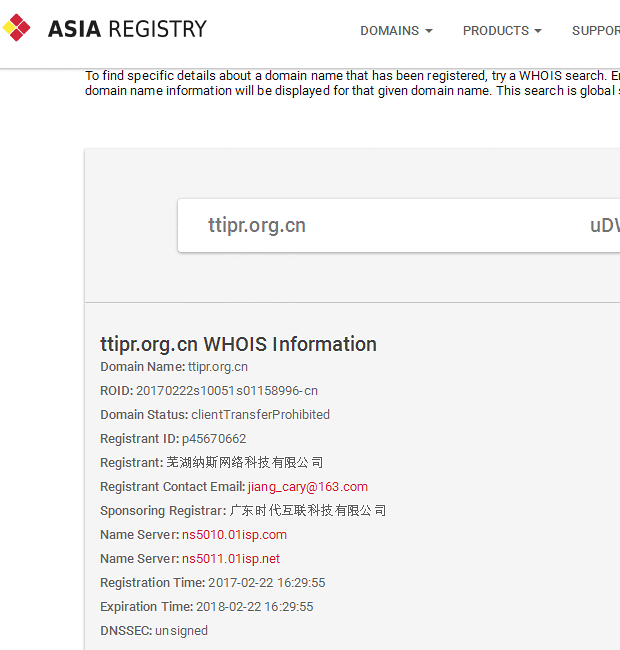
We took the Name Server information and performed a search:
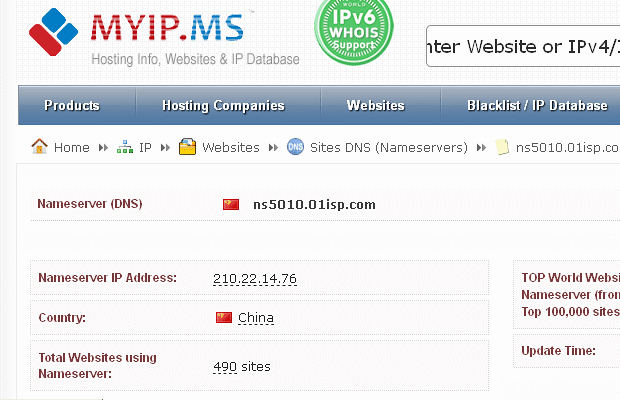
It’s safe to say this is a legitimate Scam, Phish effort, Spam – whatever we want to label it. No matter how the apple falls - - don’t respond to this type of Email.
We ran the domain associated with the Email (ttipr.com.cn) through ScamAdvisor. The screenshot below displays warnings about how this domain is related to multiple High Risk Sites:
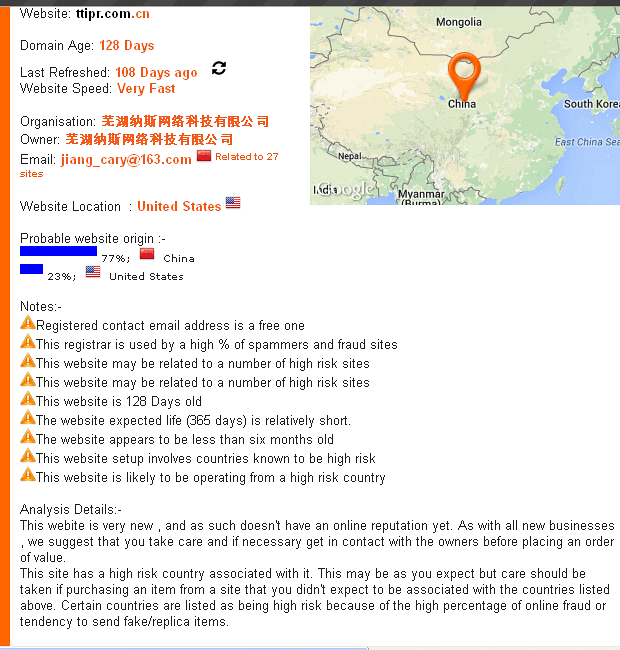
If Emails come through you feel skeptical about, look up their associated website URL at ScamAdvisor, or add the domain in question to their URL, and place in your browser search field.
Example:
https://www.scamadviser.com/check-website/any-domain-name.com
Phishing vs Hoax vs Scam Emails
Phishing Emails
Those behind Phishing Emails use “urgency” as the motivator for you to make a payment to an un-reputable site or open an attachment containing a virus, spyware or malware.
Hoax Emails
These Emails present themselves as a communication from a trusted source most often as a well known entity or organization.
The “From” name may display the Email was delivered from the trusted source, but the Email Address will be different.
Scam Emails
These Emails present unbelievable offers, such as prizes or trips, sometimes asking you to renew a subscription or membership.
Rule of Thumb
If you don’t know the Sender, just Delete the Email. If it’s important, they’ll contact you again. When you don’t respond you’ll be dropped from their list. When they receive a response from you, they’ll add your confirmed response Email address to another list and you’ll be contact you over and over.
You may want to take advantage of the Constant Contact free trial (no credit card required):
http://www.constantcontact.com/signup.jsp
Top 10 Features of Constant Contact:
https://community.constantcontact.com/t5/Conversations/The-Top-10-Features-of-Constant-Contact/td-p/227348




